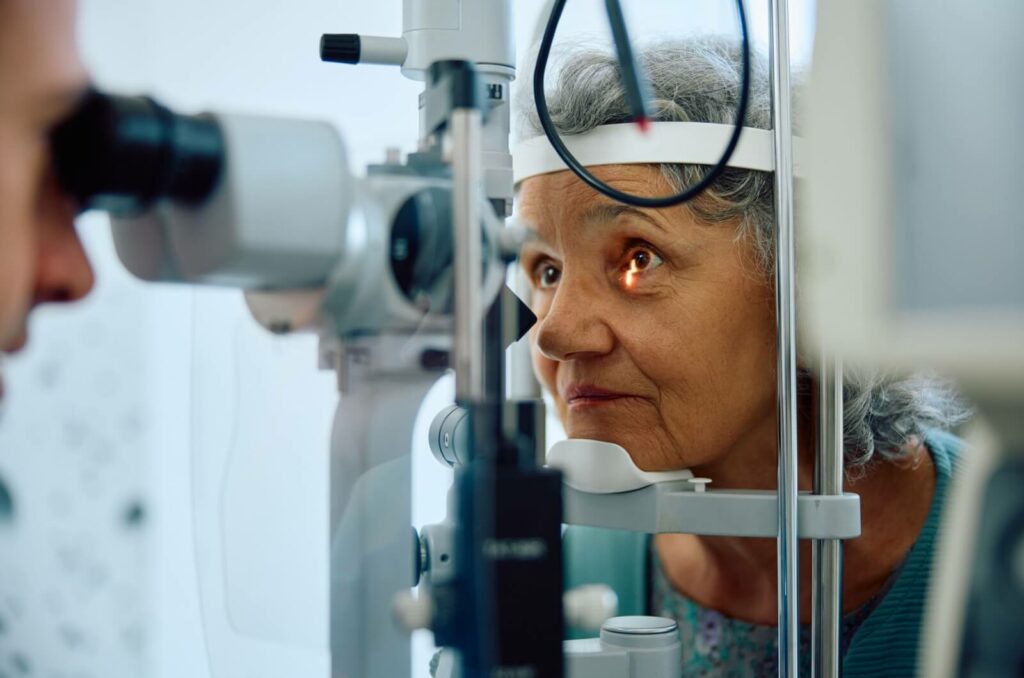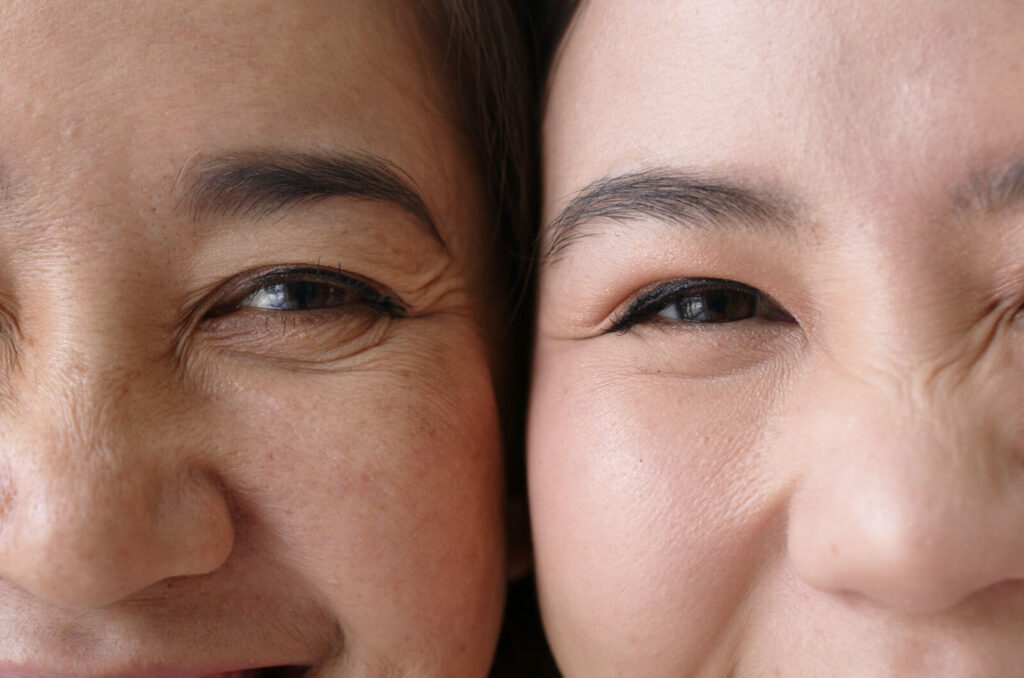Glaucoma is a group of eye diseases that can cause permanent vision loss and affects about 3 million people in the United States. It’s often marked by increased pressure in the eye, which can damage the optic nerve over time, leading to a gradual loss of vision. If left untreated, glaucoma can result in serious complications, including blindness.
Many people wonder if glaucoma is hereditary and can be passed from parents to children. The answer isn’t simply yes or no as several factors influence an individual’s risk of developing glaucoma. Genetics do play a role, as a family history of the disease raises the chances of getting it. Other factors like age, ethnicity, and overall eye health also affect susceptibility. Regular eye exams are essential for early detection and management, especially for those with a family history or other risk factors.
Understanding the Genetic Link to Glaucoma
Researchers have identified several genetic mutations and variations that increase a person’s risk of developing glaucoma. For example, primary open-angle glaucoma (POAG) is the most common form of the disease and has been linked to multiple genes. POAG is often called “the silent thief of sight” because it progresses slowly and without symptom until significant vision loss occurs.
One specific gene mutation called the MYOC gene, has been associated with an inherited form of POAG called juvenile-onset open-angle glaucoma. This type of glaucoma typically presents in childhood or early adulthood and can be passed down through generations in an autosomal dominant pattern. This means that if one parent carries the mutated gene, their child has a 50% chance of inheriting it.
Other genetic variations that have been linked to glaucoma include those related to the production and drainage of fluid in the eye, as well as genes associated with other eye conditions like high myopia or severe nearsightedness.
Other Risk Factors for Glaucoma
While genetics play a significant role in glaucoma risk, there are also other factors that can increase an individual’s chances of developing the disease. These include:
- Age: As we get older, our risk for developing glaucoma increases. In fact, people over the age of 60 are at a higher risk for developing glaucoma.
- Race/Ethnicity: People of African, Hispanic, and Asian descent are more likely to develop certain types of glaucoma, such as POAG and angle-closure glaucoma.
- Eye health: Certain eye conditions or injuries can increase the risk of developing glaucoma. This includes previous eye surgeries, severe nearsightedness, and corneal thickness.
- Medical conditions: Some medical conditions like diabetes and high blood pressure have been linked to an increased risk of glaucoma.
- Medications: Long-term use of corticosteroids (commonly used to treat various medical conditions) has been associated with an increased risk of glaucoma.
- Family history: As mentioned earlier, having a family member with glaucoma increases your risk of developing the disease.
Prevention & Early Detection

While there is no surefire way to prevent glaucoma, there are steps you can take to decrease your chances of developing the disease. These include:
- Regular eye exams: It’s important to have comprehensive eye exams regularly, especially if you have any risk factors or a family history of glaucoma. This allows for early detection and treatment if necessary.
- Living a healthy lifestyle: Eating a balanced diet, exercising regularly, and not smoking can help keep your eyes (and overall health) in good shape.
- Protecting your eyes: Injuries to the eye can increase the risk of glaucoma, so wearing protective eyewear when participating in certain activities (such as sports or working with power tools) is recommended.
- Managing underlying medical conditions: If you have or are at risk for conditions like diabetes or high blood pressure, it’s important to work with your healthcare provider to manage them effectively.
It’s also important to be aware of any symptoms of glaucoma and seek medical attention if needed. Early detection and treatment can help prevent permanent vision loss from glaucoma. Some warning signs to watch out for include:
- Loss of peripheral vision
- Blurry or hazy vision
- Halos around lights
- Severe eye pain or headache
If you experience any of these symptoms, it’s important to schedule an appointment with your eye doctor as soon as possible.
Maintaining Healthy Vision at Total Focus Family Optometry Centre
Genetics do play a role in the development of glaucoma, but they are not the only contributing factor. By understanding your family history and other risk factors, you can take steps to protect your vision and reduce your chances of developing glaucoma. Regular eye exams, a healthy lifestyle, protecting your eyes, and managing underlying medical conditions are all important in maintaining good eye health.
At Total Focus Family Optometry Centre, we are dedicated to helping our patients maintain healthy vision and prevent eye diseases like glaucoma. If you have any concerns or questions about glaucoma or your overall eye health, please don’t hesitate to schedule an appointment with us.




